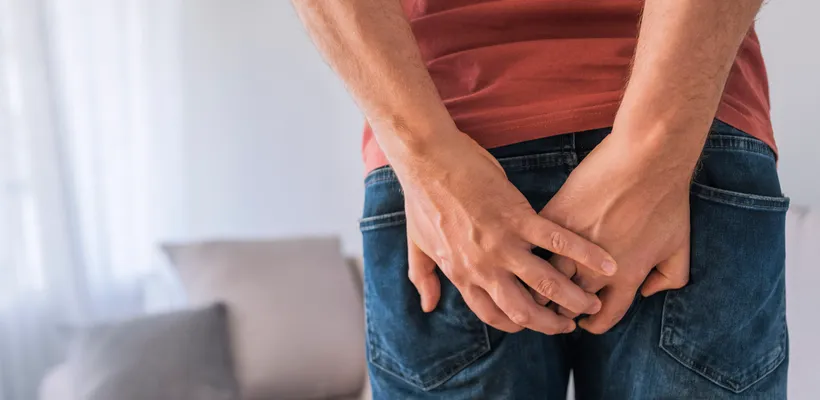
Published: 26th July, 2020 in: Health
Haemorrhoids occur when blood vessels around the anus become enlarged. Often known as piles, these enlarged blood vessels cause lumps to appear both inside and around the anus, which can result in discomfort and pain.
There are a number of symptoms that may or may not present themselves if you are suffering from haemorrhoids. In some cases, you may not even know you have them and they will recover by themselves within a few days however, in more severe cases there are some things to look out for:
If you find you have any of these symptoms, you may be suffering from haemorrhoids. If this is the case you may want to look into some at-home treatments to help relieve symptoms and prevent future flare-ups. If you are worried however, suffering frequent flare-ups or improvement has not been seen after 7 days of treatment, you should visit your GP as further treatment may be required.
If there is a large amount of bleeding i.e. if the toilet water turns red, if you are bleeding constantly or in severe pain you should go to A&E immediately or call 999.
While it is not exactly known what causes haemorrhoids, a number of factors have been identified that make haemorrhoids more likely:
They have been associated with increased pressure on the blood vessels around the anus, all of which the above can result in. This added pressure can then cause swelling and inflammation, forming lumps in and around the anus.
Haemorrhoids are particularly prevalent during pregnancy. This is because during pregnancy the body releases hormones. Some of these hormones make the veins relax; including those around the anus. This can, therefore, increase the chances of developing haemorrhoids in pregnancy. The symptoms for piles during pregnancy are the same as for those who are not currently pregnant; predominantly itching or pain around the anus, blood after bowel movements, mucus and lumps around the anus.
Haemorrhoids is not a condition that just affects adults, children can also suffer from haemorrhoids. This may occur due to prolonged periods of sitting on hard surfaces, or straining during bowel movements, often resulting from digestive problems. When looking for haemorrhoid treatments suitable for children, you should always ensure you speak to a GP or pharmacist first and read the information leaflets provided with medications. This is because many over the counter hemorrhoid treatments are not suitable for use by children.
It is possible to treat haemorrhoids at home; you should see improvement after 7 days of treatment. If not, you should visit your GP as stronger medication may be required.
In order to treat haemorrhoids at home or prevent haemorrhoids in the future you should:
You should not:
You may also want to speak to your pharmacist about possible over the counter haemorrhoid treatments. Treatments include suppositories, ointments, wipes and creams for haemorrhoids. Wipes such as the Preparation H Soothing Wipes can help to keep the area clean whilst providing soothing relief to itching of external haemorrhoids. Suppositories such as the Anusol Suppositories, are able to provide treatment for internal haemorrhoids. They also have antiseptic properties which help to reduce inflammation and promote healing. The Anusol Cream on the other hand is able to provide treatment to both internal and external haemorrhoids. It contains a range of ingredients that help to relieve symptoms, aid healing and protect raw or irritated skin. Always read the information leaflets provided before using the products.
If symptoms persist after 7 days of treatment, you should visit your GP. They may suggest further treatment is required, some of which will require hospitalisation. There are a range of treatment options, something your doctor will discuss with you to ensure you find the best option for your circumstances. Non-surgical options include:
If these treatments are not successful, surgery may be required. This is a last resort however and at-home treatments should be trialed first. Surgical options include:
Browse our range of hemorrhoid treatments.
For more information on the symptoms, causes and treatments for hemorrhoids why not speak to a member of our knowledgeable team, or visit one of our pharmacy branches?
If problems persist, contact your GP for further advice.
https://www.nhs.uk/conditions/piles-haemorrhoids/
https://www.nhs.uk/conditions/pregnancy-and-baby/piles-haemorrhoids-pregnant/